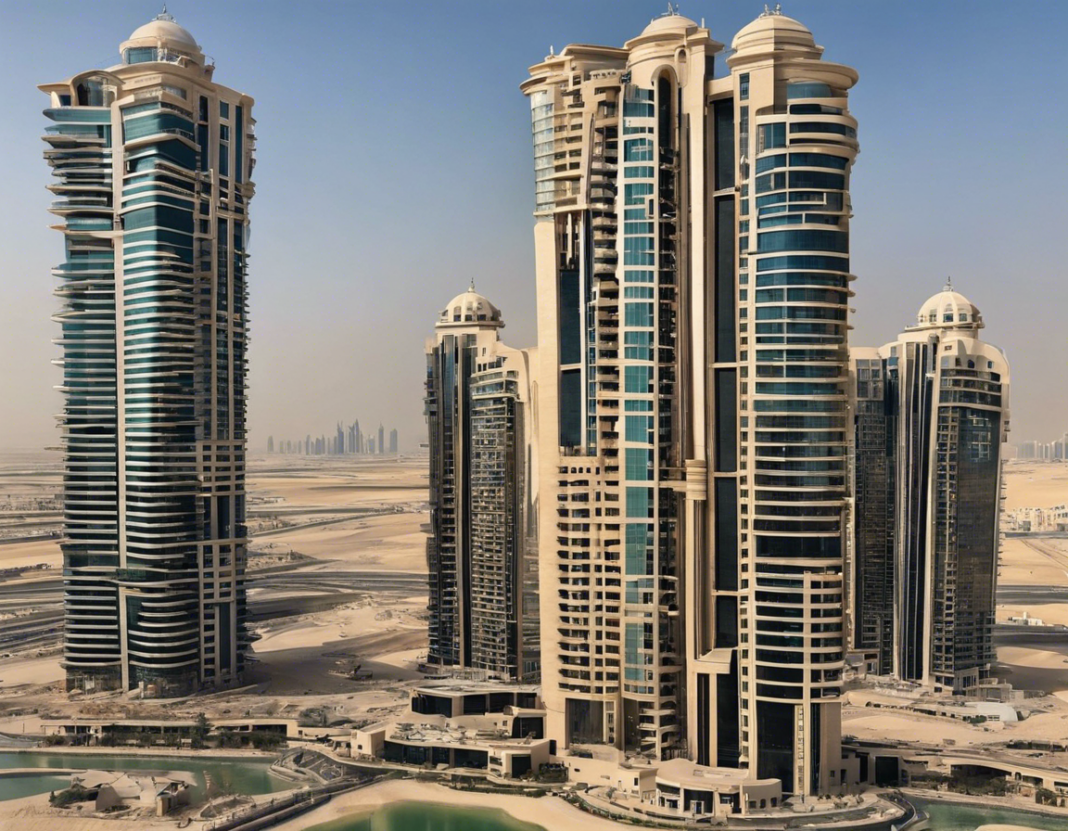Introduction
The real estate market in Dubai has long been a hotspot for international investors seeking lucrative opportunities. Pakistani nationals specifically have been actively involved in this market, with a significant interest in purchasing property in the emirate. However, recent leaks have highlighted challenges faced by Pakistani investors in Dubai’s property sector. These challenges range from legal complexities to financial risks, and it is essential for potential investors to be aware of these issues before venturing into the Dubai real estate market.
Legal Framework and Regulations
One of the primary challenges for Pakistani nationals investing in Dubai’s property market is the legal framework and regulations governing real estate transactions. Foreign investors often face restrictions on the types of properties they can purchase and the areas where they can invest. Understanding the legal requirements, including residency permits and ownership regulations, is crucial to avoid legal pitfalls and potential financial losses.
Tax Implications
Tax implications can significantly impact the overall return on investment for Pakistani investors in Dubai properties. While Dubai is known for its tax-friendly environment, it is essential for investors to be aware of any potential tax liabilities in both Dubai and their home country. Failure to understand the tax implications of owning property in Dubai can lead to unexpected financial burdens and legal issues.
Currency Fluctuations
Currency fluctuations can have a profound impact on the value of investments for Pakistani nationals in Dubai properties. Exchange rate volatility between the Pakistani Rupee and the UAE Dirham can affect the purchasing power of investors and the overall profitability of their investments. It is crucial for investors to consider currency risk management strategies to mitigate potential losses due to fluctuating exchange rates.
Due Diligence
Conducting comprehensive due diligence is essential for Pakistani investors looking to purchase property in Dubai. This includes verifying the authenticity of property listings, conducting property inspections, and ensuring that all legal documents are in order. Failure to perform due diligence can expose investors to risks such as property fraud, ownership disputes, and legal challenges that can result in financial losses.
Market Volatility
The Dubai real estate market is known for its volatility, with property prices fluctuating based on various factors such as economic conditions, market demand, and supply dynamics. Pakistani investors need to be aware of the risks associated with market volatility and the potential impact on the value of their investments. It is advisable to work with experienced real estate professionals who can provide insights into market trends and help navigate turbulent market conditions.
Financial Risks
Investing in Dubai properties can involve significant financial risks for Pakistani nationals. From mortgage obligations to maintenance costs and property management fees, investors need to carefully evaluate the financial implications of owning property in Dubai. It is crucial to develop a comprehensive financial plan that accounts for all potential expenses and risks to ensure a profitable investment venture.
Conclusion
While the Dubai property market offers attractive opportunities for Pakistani investors, navigating the challenges and risks associated with investing in this market is essential for success. By understanding the legal framework, tax implications, currency fluctuations, due diligence requirements, market volatility, and financial risks, Pakistani nationals can make informed decisions and mitigate potential pitfalls in their real estate investments in Dubai. Working with experienced professionals and conducting thorough research can help investors overcome these challenges and capitalize on the lucrative opportunities offered by the Dubai property market.
Frequently Asked Questions (FAQs)
1. Can Pakistani nationals own property in Dubai?
Yes, Pakistani nationals can own freehold property in designated areas of Dubai, subject to certain restrictions and regulations.
2. What are the tax implications for Pakistani investors in Dubai properties?
Pakistani investors may be subject to property taxes, capital gains taxes, and withholding taxes in Dubai and Pakistan. It is advisable to consult with tax advisors to understand the tax obligations.
3. How can Pakistani investors mitigate currency risks when investing in Dubai properties?
Pakistani investors can consider hedging strategies, such as currency derivatives or forward contracts, to mitigate the impact of currency fluctuations on their investments.
4. What due diligence steps should Pakistani investors take before purchasing property in Dubai?
Pakistani investors should verify property ownership documents, conduct inspections, review sales agreements, and seek legal advice to ensure a smooth and secure property transaction.
5. How can Pakistani investors assess market volatility in the Dubai real estate market?
Pakistani investors can monitor market trends, property prices, rental yields, and economic indicators to gauge market volatility and make informed investment decisions.
6. What financial risks should Pakistani investors be aware of when investing in Dubai properties?
Pakistani investors should consider mortgage obligations, maintenance costs, property management fees, vacancy rates, and potential fluctuations in property prices as key financial risks to manage.
7. Are there specific areas in Dubai that are more suitable for Pakistani investors to purchase property?
Pakistani investors should consider areas with high rental yields, strong infrastructure, proximity to amenities, and potential for capital appreciation when selecting properties in Dubai.
8. How can Pakistani investors protect their investments in Dubai properties from legal disputes?
Pakistani investors can engage with reputable real estate agents, legal advisors, and property management companies to ensure compliance with regulations, resolve disputes, and protect their investments legally.
9. What financing options are available to Pakistani nationals for purchasing property in Dubai?
Pakistani nationals can explore mortgage options from local banks in Dubai or international lenders to finance their property purchases, subject to eligibility criteria and interest rates.
10. Are there any residency requirements for Pakistani investors who own property in Dubai?
Pakistani investors may be eligible for residency permits in Dubai based on their property ownership status, investment value, and compliance with immigration regulations. It is advisable to seek guidance from immigration consultants for residency applications.
